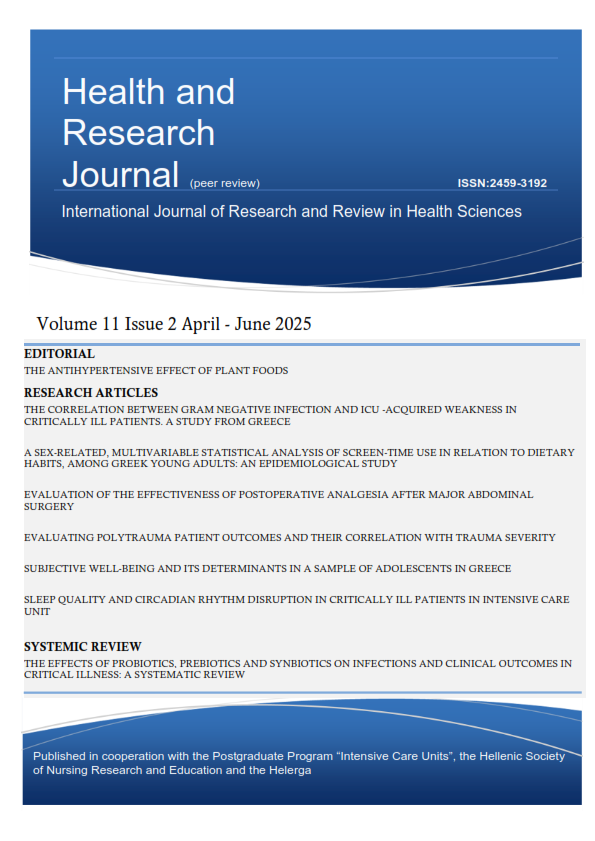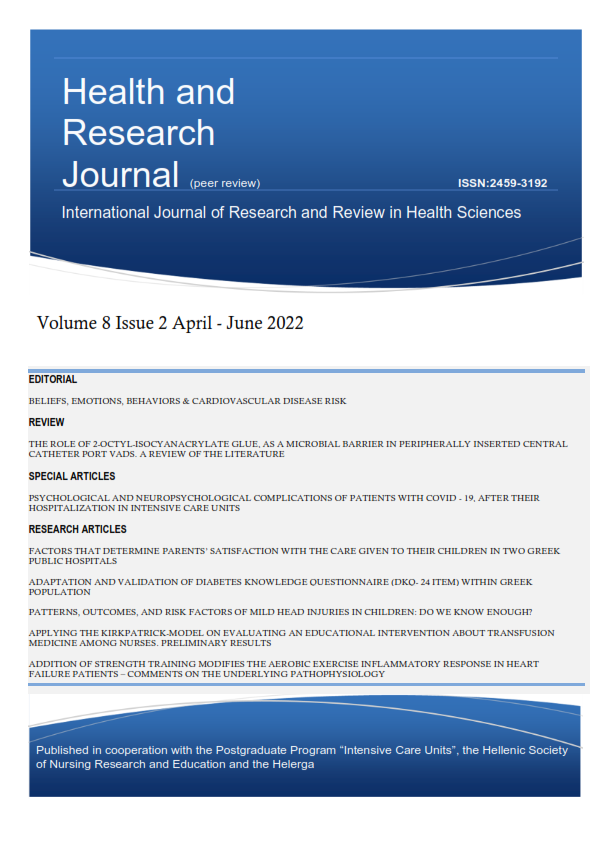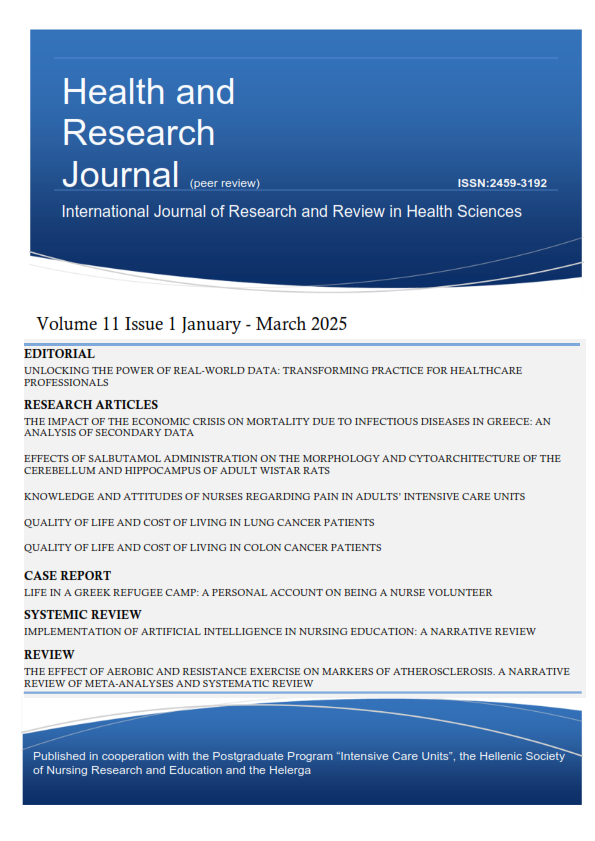A sex-related, multivariable statistical analysis of screen-time use in relation to dietary habits, among Greek young adults: an epidemiological study

Abstract
Background: Studies assessing screen time use in relation to lifestyle factors have predominantly concentrated on children and adolescents. Very few studies have been carried out on adult populations. The aim of this study was to investigate the association between time spent on screen (for work, education, entertainment), with dietary habits, among Greek young adults.
Methods and Material: This is a cross-sectional study, based on convenience sampling of 687 adults (522 females), 18-30 years old, that was conducted on May 2023, in Greece. A structured questionnaire was used in which participants were asked about on screen-time habits (i.e., cellphone/tablet, television, computer/laptop), regarding work, education and entertainment, as well as various lifestyle characteristics, including dietary habits. Univariate and multivariate statistical methods were applied to explore the research hypothesis.
Results: Mean daily screen time was 5±4 hours for work and 6±3.5 hours for entertainment. Unfavorable behaviors regarding excess screen time use and unhealthy dietary habits, were revealed. No significant association was observed between screen time use and adherence to the Mediterranean diet, when the analysis was stratified by sex.
Conclusion: An association between screen time use and unhealthy dietary habits was revealed among young adults, which in the long-term may significantly influence their health status.
Article Details
- How to Cite
-
Panagiotakou, E.-E., Kassimatis, E., Gkoletsos, E. .-M., Kokkinelou, E., Tsourti, P., Psykou, S., & Panagiotakos, D. (2025). A sex-related, multivariable statistical analysis of screen-time use in relation to dietary habits, among Greek young adults: an epidemiological study. Health & Research Journal, 11(2), 109–116. https://doi.org/10.12681/healthresj.38556
- Section
- Original Articles
Copyright notice:
Authors retain copyright of their work and grant the Health and Research Journal the right of first publication.
License:
Articles are published under the Creative Commons Attribution 4.0 International License (CC BY 4.0). This license permits use, sharing, adaptation, distribution, and reproduction in any medium or format, including for commercial purposes, provided that appropriate credit is given to the author(s) and the original publication in this journal, a link to the license is provided, and any changes are indicated.
Attribution requirement:
Any reuse must include the article citation and DOI (where available), and indicate if changes were made.




